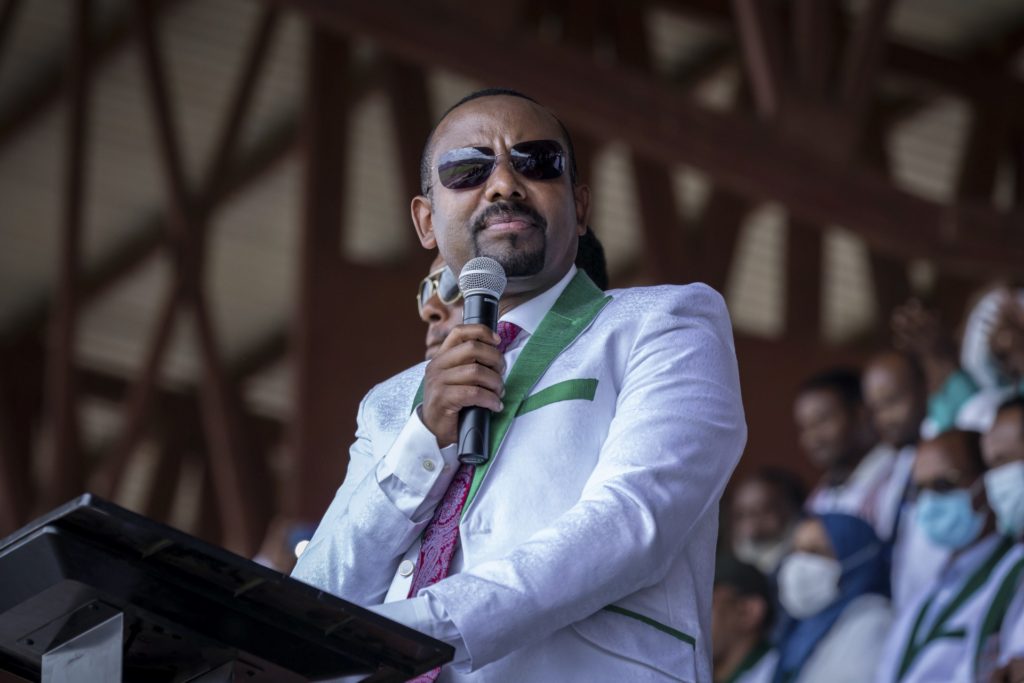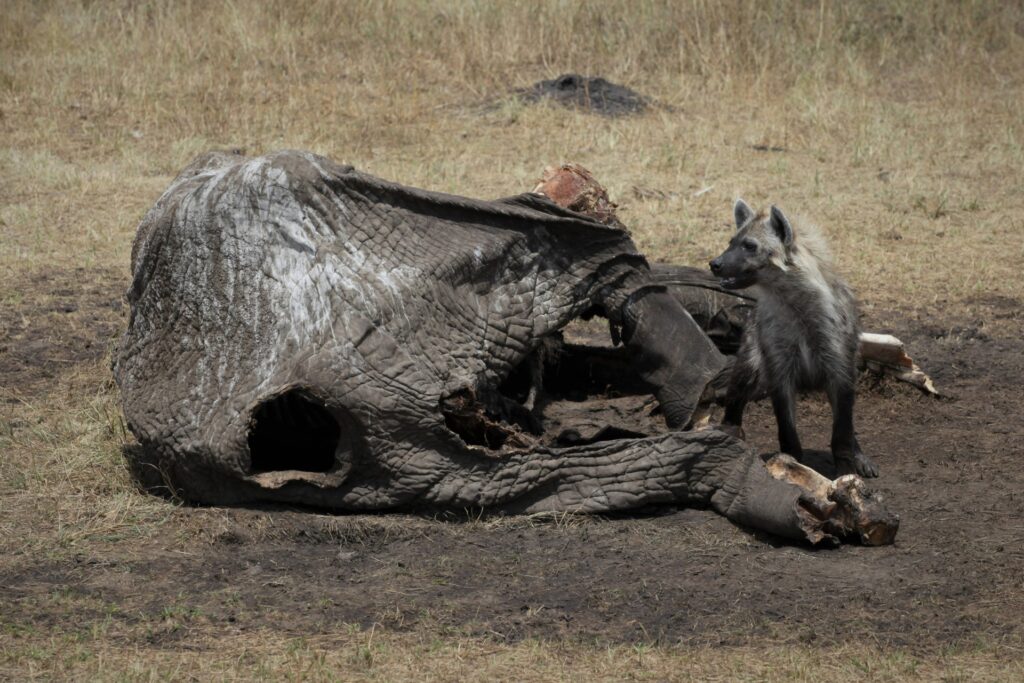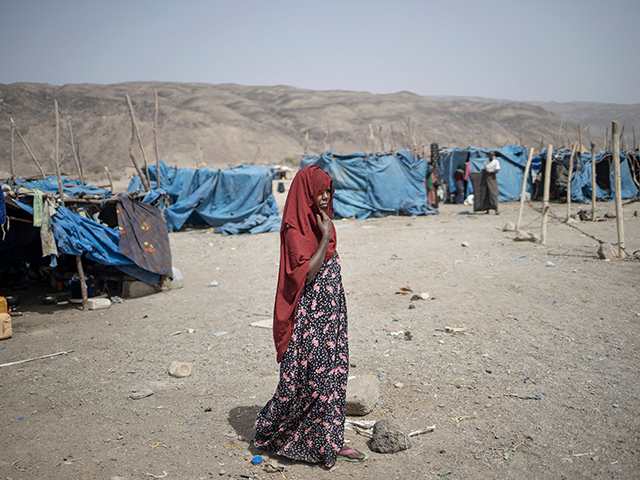Civilians in Ethiopia — both within the blockaded northern region of Tigray and throughout the country — are facing rape, executions, torture, beatings, and the abduction of their children to be used as child soldiers, harrowing reports out of the country revealed this week.
The government of Ethiopia — led by Prime Minister Abiy Ahmed, the 2019 Nobel Peace Prize winner — has been at war with the Tigray People’s Liberation Front (TPLF), a formerly ruling Marxist political party, since November 2020. Ahmed’s government accused the TPLF of assaulting military facilities that month and responded with a full-scale assault on the entire region of Tigray, including a blockade that prevents the distribution of much-needed humanitarian aid and prevents communication with the outside world that remains in place to this day.

Ethiopia’s Prime Minister Abiy Ahmed speaks at a final campaign rally at a stadium in the town of Jimma in the southwestern Oromia Region of Ethiopia, Wednesday, June 16, 2021. (AP Photo/Mulugeta Ayene)
The TPLF was Ethiopia’s ruling party for nearly 30 years, despite the Tigrayans being an ethnic minority in the country. Abiy is of the Oromo ethnic group, who are a plurality in the extremely diverse nation, and has used his position in power largely to eradicate the influence of the Marxist group, including designating the TPLF a terrorist organization in the course of the war.

A hyena eats from a dead elephant in the Masai Mara Game Reserve. (Steffen Trumpf/picture alliance via Getty Images)
The war has expanded far beyond military operations to counter the TPLF’s alleged initial attack, however. Humanitarian aid groups say the blockade makes feeding and providing critical medication to the civilian Tigrayan population, about 6-7 million people, impossible. This week, Tigray’s largest hospital issued a desperate plea for basic diabetes supplies, which the blockade has prevented from entering the region. Tigrayans accuse Abiy of genocide for implementing measures causing widespread death in a region populated by one discrete ethnic group. The United States has referred to the campaign as “ethnic cleansing.”
TPLF fighters have also been accused of widespread atrocities, including gang rape, torture, and mass murder against Amharic people and other ethnic minorities not directly implicated in the war between Abiy and the TPLF.
The civil war stopped being a civil war this year, when Eritrea became deeply involved on behalf of the Ethiopian government. Abiy won the Nobel Peace Prize for ending a longstanding war between the two countries under the TPLF.
The Ethiopian government confirmed the takeover of three towns – Shire, Alamata, and Korem – in Tigray on Tuesday, claiming that the seizure occurred “without fighting in urban areas.”
“In recent days, the ENDF [Ethiopian National Defense Forces] has taken control of some urban areas in the Tigray Region,” an official statement from Addis Ababa read. “The Government of Ethiopia is carrying out the necessary preparations and will coordinate with the relevant humanitarian agencies to provide humanitarian aid through these areas that have come under the control of the ENDF, including via the Shire airport.”
Statement on the Resumption of Humanitarian aid and Services pic.twitter.com/hrIiMmqhIb
— FDRE Government Communication Service (@FdreService) October 18, 2022
The capture of those towns is a strategic victory for the government because they contain airports and other critical infrastructure that can help limit the TPLF’s ability to function.
The battle to capture Shire resulted in humanitarian workers there fleeing the bombings, the BBC reported on Tuesday, recounting the horror of hundreds of thousands of civilians, many of whom had fled other war-torn areas of Tigray, stuck in Shire with nowhere to turn.
“More than 120,000 were out in the open, sleeping under trees and bushes,” an anonymous source told the BBC.
At least one humanitarian aid worker died as a result of Ethiopian government bombings in Shire, the Addis Standard reported on Monday.
“Atrocities by Ethiopian and Eritrean forces after the previous capture of towns in Tigray heighten concerns for the civilians remaining in Shire and elsewhere of more killings and other abuses, and mistreatment in displacement camps,” Human Rights Watch warned on Tuesday. “Since the fighting resumed in late August, Tigrayan forces fighting in the neighboring Amhara region have also reportedly carried out killings of civilians and pillaged property in Kobo town.”
Human Rights Watch demanded sanctions on the Ethiopian and Eritrean governments and freezing of financial assets used to keep the war raging.
The African Union, which has participated unsuccessfully in bringing the TPLF and Ethiopian government to the negotiating table, sounded the alarm on the potential for significant death and destruction in Shire on Monday, calling for “an immediate, unconditional ceasefire and resumption of humanitarian services.” Neither side has taken prior demands seriously, though a nominal ceasefire took place in the summer that concluded in late August. Both sides claim the other violated the ceasefire, resulting in the resumption of hostilities.
The TPLF responded to the African Union by claiming it was ready for talks and asking the world “to compel the Eritrean army to withdraw from Tigray, take practical steps towards an immediate cessation of hostilities, and press the Ethiopian Government to come to the negotiating table.”
The BBC shared other harrowing anecdotes from Tigray, including the massacre of dozens in a local village where the fighters had left the bodies out for animals to eat.
“Four witnesses reported that in the village of Shimblina in September, 46 people were rounded up and summarily executed. Other villagers found their bodies lying mixed with domestic animals, which had also been killed,” an aid worker told the BBC. “Hyenas had eaten a few of the bodies, and they could be identified only by the remains of their clothing. The witnesses said they had no time to bury the bodies, and the hyenas must have finished them by now.”
The victims there, the BBC noted, were of the Kunama ethnicity, neither Oromo nor Tigray.
Far outside Tigray, civilians are also living in terror – not of the war coming to them, but of forced conscription and the kidnapping of their children to be used as cannon fodder. Last week, the Addis Standard interviewed civilians in Oromia, about 500 miles south of Tigray, who testified to government troops going door-to-door and stealing children from their families.
“The children are being abducted. The majority of the children being abducted are members of the Oromo community. Some are also members of communities from Southern Nations, Nationalities and People;s regional state,” a witness identified by the pseudonym Biniam told the Ethiopian newspaper. “They [security forces] break into houses and abduct children. They pick them, throw them on trucks and drive them to police stations and concentration camps. The majority of the victims are daily laborer children aged between 13 to 15.”
Day laborer children do not attend school, but locals, the witness added, now fear being apart from their schoolchildren as the population of children in forced labor dwindles.
“They have started hunting for school children. They have abducted some school children,” Biniam said. “Fathers are watchful of their kids; they are afraid to send children to school alone. They are taking their kids to school and waiting at the gate of the school to take them back home. Families are resenting it and are disappointed by this action.”
Biniam also claimed the government kidnaps young children to “request a random,” including the case of at least one newborn infant.
Abdurahman Sayed, an analyst, told the BBC that the government needs a high volume of soldiers to conquer Tigray through force of numbers.
“People are drafted into the armies and, after only a few weeks of training, they are sent in large numbers through mined areas towards the trenches of the enemy,” he claimed. “The enemy opens fire and kills many of them, but they keep coming in waves until the enemy runs of ammunition and they occupy their trenches. … It is the old way of warfare. It was first used by the king of Abyssinia to defeat the Italian invaders in the 1890s.”
Some outside estimates suggest as many as half a million people have died since the war began in late 2020.

COMMENTS
Please let us know if you're having issues with commenting.